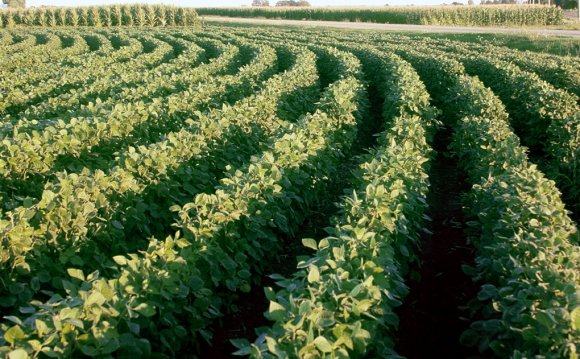
Agricultural engineers integrate technology with farming. For example, they design new and improved farming equipment that may work more efficiently, or perform new tasks. They design and build agricultural infrastructure such as dams, water reservoirs, warehouses, and other structures. They may also help engineer solutions for pollution control at large farms. Some agricultural engineers are developing new forms of biofuels from non-food resources like algae and agricultural waste. Such fuels could economically and sustainably replace gasoline without jeopardizing the food supply.
What Do Agricultural Engineers Do?
While agricultural engineers may develop specialties, most are involved in certain core activities. For example, most professionals design and test agricultural machinery, equipment, and parts. They may also design food storage structures and food processing plants. Some may design housing and environments for livestock.
Those interested in sustainability may provide advice on water quality and water pollution control issues. They may also plan and oversee land reclamation projects on farms. Others may be involved in agricultural waste-to-energy projects and carbon sequestration (absorbing carbon dioxide from the atmosphere into the soil, crops and trees).
Where Does an Agricultural Engineer Work?
As of May 2012, most agricultural engineers (17%) were employed in architectural, engineering and related services. 16% were employed by the federal government. Another 14% worked in food manufacturing. 13% worked in agriculture, construction, and mining machinery manufacturing. Another 6% were employed as educators.
Agricultural engineers work both indoors and outdoors. They spend time in offices creating plans and managing projects, and in agricultural settings inspecting sites, monitoring equipment, and overseeing reclamation and water management projects. These positions may involve a significant amount of travel. These engineers may also work in laboratories and classrooms. They may collaborate with others to plan and solve problems. For example, they may work with horticulturalists, agronomists, animal scientists, and geneticists.
What Are Work Schedules Like?
Agricultural engineers usually work full time, including occasional overtime. For example, they may work long hours to make progress on projects during periods of good weather. They are also often on call to manage problems that may arise on various projects.
What Is a Typical Agricultural Engineer's Salary?
Agricultural engineers earned an average annual salary of $74, 000 per year in 2012, or $35.58 per hour. Those employed in architectural, engineering, and related services earned the highest average salary ($82, 090). Those in federal government made $77, 030. Engineers in agriculture, construction, and mining machinery manufacturing earned $67, 690, while educators earned $50, 100.
| State | Total Employment | Bottom 25% | Median Salary | Top 75% |
|---|---|---|---|---|
| California | 160 | $66, 070 | $75, 660 | $88, 360 |
| Colorado | 30 | $61, 230 | $72, 550 | $80, 560 |
| Florida | $36, 150 | $44, 340 | $59, 120 | |
| Georgia | 150 | $83, 330 | $101, 890 | $113, 370 |
| Illinois | 130 | $58, 320 | $69, 310 | $89, 440 |
| Indiana | 60 | $59, 270 | $67, 280 | $82, 570 |
| Iowa | 370 | $63, 920 | $74, 960 | $91, 850 |
| Kansas | $64, 060 | $73, 620 | $85, 210 | |
| Maryland | $64, 810 | $69, 300 | $73, 910 | |
| North Carolina | 50 | $70, 450 | $103, 130 | $124, 480 |
| Ohio | 80 | $65, 400 | $80, 780 | $91, 050 |
| Pennsylvania | $59, 940 | $72, 890 | ||
| Puerto Rico | $36, 770 | $44, 150 | $61, 720 | |
| South Dakota | 40 | $44, 210 | $61, 220 | $70, 430 |
| Tennessee | $69, 340 | $78, 570 | $93, 840 | |
| Texas | 70 | $54, 140 | $84, 560 | $109, 590 |
| Virginia | 360 | |||
| Washington | 90 | $62, 700 | $68, 410 | $74, 410 |
| Wisconsin | $63, 130 | $72, 080 | $87, 360 |
Table data taken from BLS (
Agricultural Engineering Jobs
Agricultural Engineer jobs focus on the science behind food and farming, and how to help today's agricultural methods and products meet global and national food demands. While tasks vary significantly from job to job, the following list includes standard duties that an agricultural engineer will encounter:- Plan and design the building of irrigation, drainage, and flood- and water-control systems
- Review research and literature relating to current discoveries in the field
- Collect field and control samples of biological samples and non-living media in order to perform analyses
- Engineer the construction of agricultural buildings and storage facilities in order to engineer a system that is the most efficient while also the most cost effective
- Design equipment and machinery used for field preparation, seeding, spraying, harvesting, and transporting agricultural products
- Ensure equipment design is consistent with local codes and farming culture as well as catering to the resources available in the region
- Supervise all aspects of the production and delivery of agricultural products from seed to table
- Prepare and present technical reports, meet with clients, and communicate technical concepts to internal and external stakeholders
- Advocate for sustainable agriculture on a local and national level to interested parties
- Research to find new ways of farming, harvesting, and storage
- Conduct research for the design of new structures and systems
- Conduct research in the field and lab to develop practices for food production that protect the environment
RELATED VIDEO












